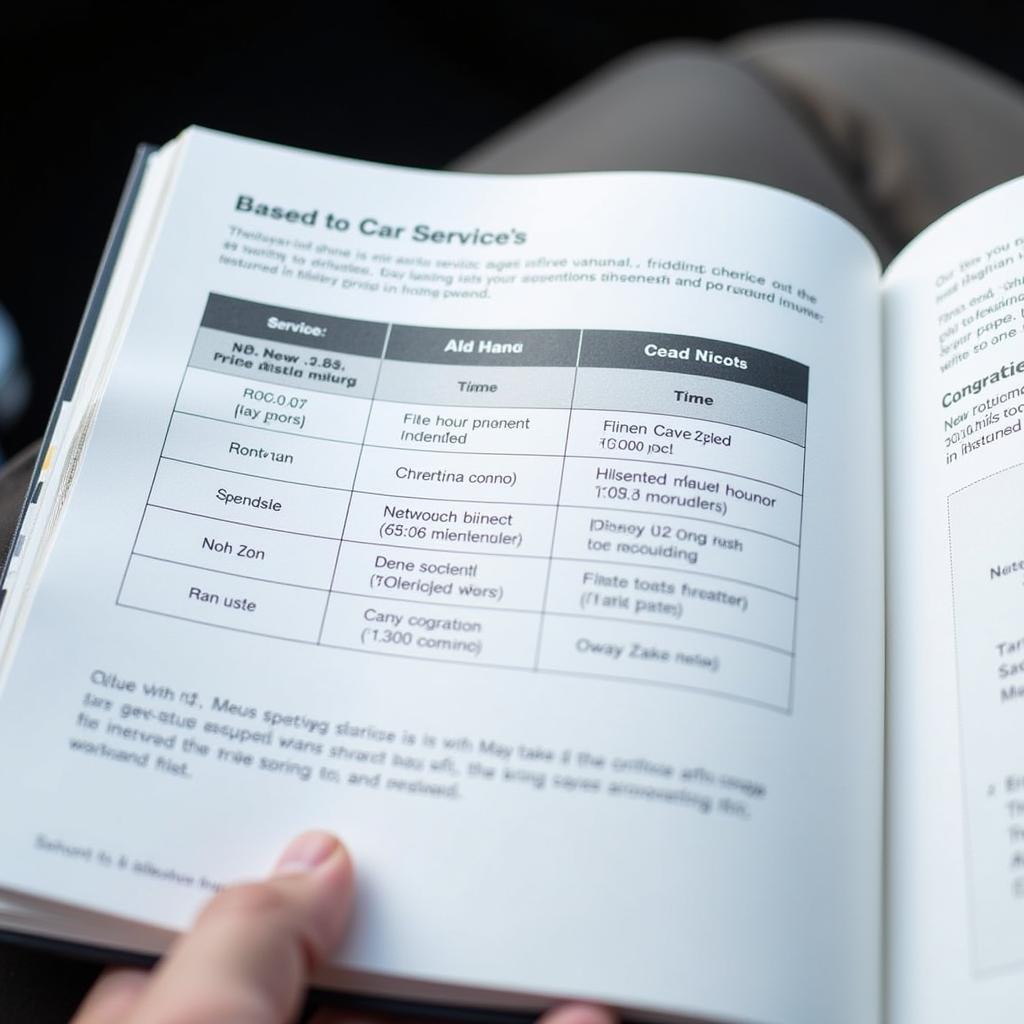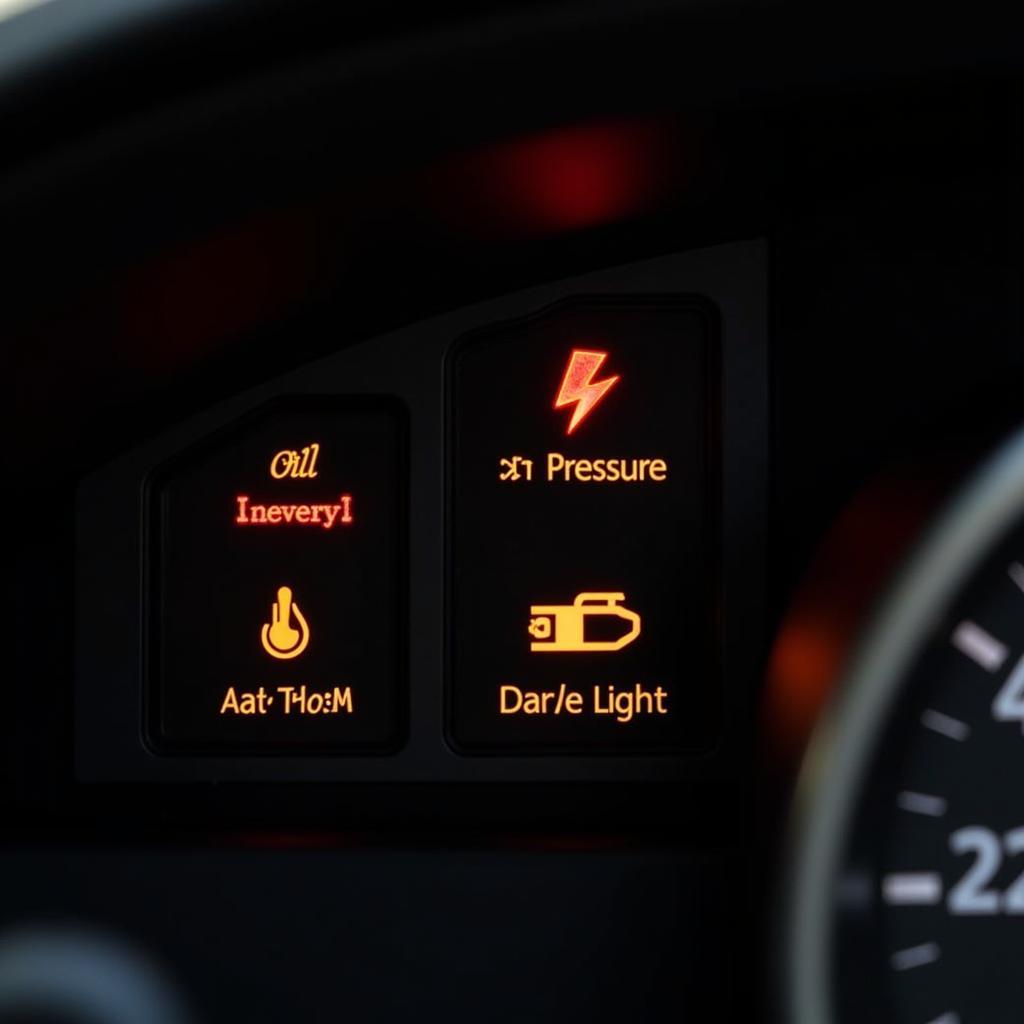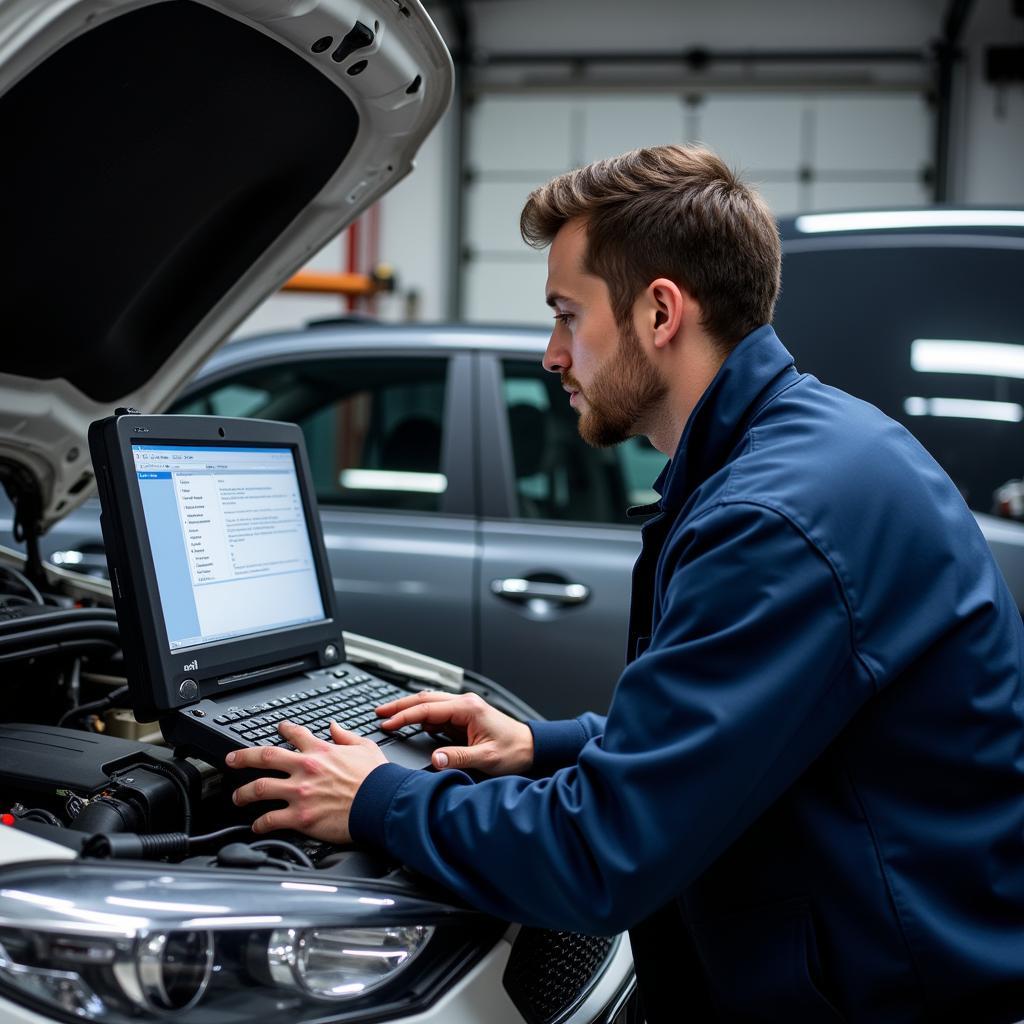When Does a Car Need a Service? A Comprehensive Guide
Knowing when your car needs a service is crucial for its longevity, performance, and your safety on the road. While modern vehicles are built to last, regular maintenance is essential to prevent costly repairs and ensure optimal driving experience. But how do you know when it’s time to take your car in? This comprehensive guide will delve into the telltale signs, recommended service intervals, and factors influencing your car’s maintenance needs.
Understanding Your Car’s Service Schedule
Most car manufacturers provide a recommended service schedule in the owner’s manual. This schedule outlines the essential maintenance tasks and their frequency, typically based on mileage or time intervals.
 Car service schedule in the owner's manual
Car service schedule in the owner's manual
Common service intervals include:
- Every 5,000-7,500 miles: Oil and oil filter change, tire rotation, brake inspection, fluid level checks
- Every 15,000-30,000 miles: Air filter replacement, cabin air filter replacement, spark plug replacement (depending on the type), fuel system inspection
- Every 30,000-60,000 miles: Coolant flush, transmission fluid change (for automatic transmissions), brake fluid flush, serpentine belt inspection
- Every 100,000 miles: Timing belt replacement (for vehicles with timing belts), differential fluid change, coolant hose inspection
It’s crucial to note that these are just general guidelines. Your car’s specific service needs may vary depending on factors such as driving conditions, climate, and driving habits.
Recognizing the Warning Signs: When Your Car Needs Attention
Besides adhering to the recommended service schedule, it’s crucial to be aware of the warning signs that indicate your car requires immediate attention. Ignoring these signs can lead to more severe problems and expensive repairs down the line.
Dashboard Warning Lights
Your car’s dashboard is equipped with various warning lights designed to alert you of potential issues. Some common warning lights include:
- Check Engine Light: This light can indicate a wide range of problems, from a loose gas cap to a more serious engine malfunction.
- Oil Pressure Warning Light: This light signals low oil pressure, which can cause severe engine damage if ignored.
- Battery Warning Light: This light indicates a problem with the battery or charging system.
- Brake Warning Light: This light can signal worn brake pads, low brake fluid, or a problem with the braking system.
 Car dashboard warning lights illuminated
Car dashboard warning lights illuminated
If any of these warning lights illuminate, it’s crucial to have your car inspected by a qualified mechanic as soon as possible.
Unusual Noises
Unusual noises coming from your car are often early indicators of developing problems. Pay attention to:
- Screeching or Grinding Noises When Braking: This often indicates worn brake pads.
- Clicking or Popping Sounds From the Engine: This could be a sign of worn spark plugs or other engine issues.
- Whining Noises: These noises can indicate problems with the transmission, power steering, or alternator.
Changes in Performance
A decline in your car’s performance can also signal a need for service. This includes:
- Reduced Fuel Efficiency: A sudden drop in gas mileage could be a sign of various issues, such as a clogged air filter, malfunctioning oxygen sensor, or engine problems.
- Difficulty Starting: If your car struggles to start, it could be a sign of a weak battery, failing starter motor, or fuel system problems.
- Rough Idling or Stalling: A rough idle or stalling can indicate issues with spark plugs, fuel injectors, or other engine components.
Fluid Leaks
Fluid leaks under your car can be a cause for concern. Identify the color of the fluid to determine the potential issue:
- Green, Yellow, or Pink Fluid: This could indicate a coolant leak.
- Brown or Black Fluid: This is likely an oil leak.
- Red Fluid: This could be a transmission fluid leak.
- Clear Fluid: This could be water condensation from the air conditioning system, but it’s best to have it checked to rule out any leaks.
Factors Influencing Your Car’s Service Needs
While following the recommended service schedule and watching for warning signs is essential, certain factors can influence how often your car needs servicing:
- Driving Conditions: Frequent driving in stop-and-go traffic, extreme temperatures, or dusty environments can put additional strain on your car’s components, requiring more frequent service.
- Driving Habits: Aggressive driving with rapid acceleration and hard braking can also accelerate wear and tear on your car.
- Vehicle Age and Mileage: Older vehicles with higher mileage generally require more frequent service as components naturally wear down over time.
Conclusion
Regular car servicing is not just about keeping your vehicle running smoothly; it’s about ensuring your safety and potentially saving you money on costly repairs in the long run. By understanding your car’s service schedule, recognizing warning signs, and considering factors that can influence your car’s maintenance needs, you can take proactive steps to keep your car in top condition for years to come. Remember, a well-maintained car is a safe and reliable car.
FAQs About Car Servicing
How Much Does a Car Service Cost?
The cost of car servicing varies widely depending on the type of service required, the make and model of your car, and your location.
how much does black car service cost
Can I Service My Own Car?
While some basic maintenance tasks, such as checking fluid levels and changing the air filter, can be done at home with some mechanical knowledge, it’s generally recommended to have your car serviced by a qualified mechanic, especially for more complex procedures.
How Often Should I Get an Oil Change?
Most manufacturers recommend an oil change every 5,000-7,500 miles or every 6 months, whichever comes first. However, refer to your owner’s manual for specific recommendations for your car model.
What Happens If I Don’t Service My Car?
Neglecting your car’s service can lead to reduced performance, decreased fuel efficiency, more frequent breakdowns, and potentially dangerous driving conditions.
What Should I Look for in a Mechanic?
Choose a mechanic or repair shop with a good reputation, ASE certification, and experience working on your car’s make and model.
Can I Extend the Life of My Car with Regular Servicing?
Yes, regular servicing can significantly extend the life of your car by preventing minor issues from escalating into major problems and ensuring all components are in good working order.
What Should I Do Before Taking My Car for Service?
Gather your car’s service history, make a list of any issues you’ve noticed, and remove any valuable belongings from the vehicle.
Need help with your car service? Contact us via WhatsApp: +1(641)206-8880, Email: [email protected]. We have a 24/7 customer support team ready to assist you.

